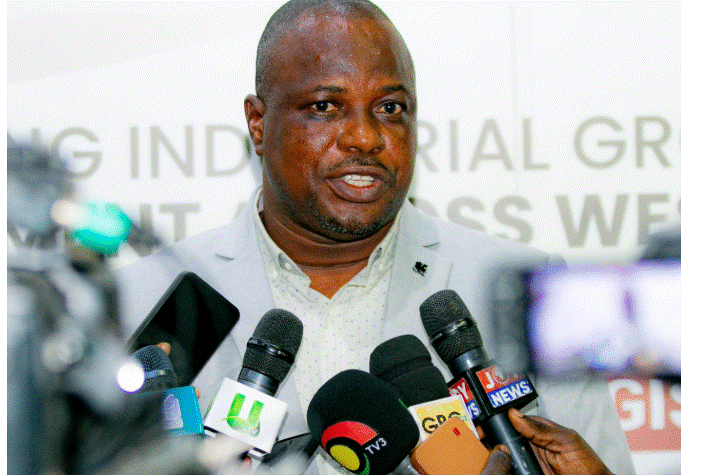GITW 2025: Stakeholders push for smarter infrastructure planning in Ghana
The Founder and Senior Partner of AB & David Africa, David Ofosu-Dorte (Esq.), has raised concerns over Ghana’s current approach to Public-Private Partnership (PPP) arrangements — particularly the public sector’s lead role in conducting feasibility studies.
Speaking as the keynote speaker at the 2025 Ghana Investment and Trade Week Summit (GITW) held at the Accra International Conference Centre on July 2, Ofosu-Dorte said the current practice contributes significantly to Ghana’s ballooning public debt.
“We have borrowed huge amounts of money to do feasibilities that we have not delivered,” he stated, stressing that it doesn’t “make sense” for the public sector to bear the full cost of such studies.
Instead, he proposed that government should limit its role to pre-feasibility studies and concept notes, allowing private partners to take up feasibility assessments to reduce risk and manage costs more effectively.
Ofosu-Dorte further warned that if PPP-related risks are not carefully managed, they can backfire on the public sector.
“Many PPP projects have failed in Ghana because the risks associated with them were borne by our governments,” he observed, adding that some of these risks are external and demand more prudent management.
To address these challenges, he advocated for a stronger public-private collaboration ecosystem, backed by unwavering political will. He also urged public officials to be mindful of how partisan remarks could negatively impact investor confidence.
“We should be careful about statements we make when we hold both public and party positions,” he cautioned.
He concluded by stressing the importance of structuring PPPs in ways that do not increase the country’s debt burden:
“Our governments [need] to structure PPP projects without bloating the public sector debt which often leads to chaos.”
Chairing the event, the President of the National House of Chiefs, Ogyeahoho Yaw Gyebi III, echoed the importance of smart infrastructure in Ghana’s industrial transformation.
He emphasised that traditional leaders are key partners in national development and that their involvement signals broad-based commitment to Ghana’s growth.
Ogyeahoho Gyebi noted that while PPPs have generated around $10 billion in infrastructure investments across West Africa, Ghana has only attracted a fraction.
To reverse this trend, he called for blended finance models to attract foreign direct investment and drive long-term economic growth.
He also underlined the role of SMEs in the broader industrialization agenda.
He noted that investing in infrastructure remains a critical lever for industrial development, factory expansion, and GDP growth.
He urged the private sector to embrace the new era with boldness and creativity, pledging traditional leadership’s full support to the construction and real estate industries.
In a welcome address, Chairman of the Ghana Chamber of Construction Industry (GhCCI), Emmanuel Tetteh Martey, described the summit’s theme — “Constructing Prosperity: Advancing Industrial Growth Through Smart Infrastructural Planning” — as timely and aligned with key national strategies such as the 24-Hour Economy initiative and the Big Push.
“Infrastructure is the heartbeat of a nation’s development, laying the foundation for trade and job creation,” Martey said.
He praised the Mahama administration’s development-oriented policy direction, particularly the Big Push, noting:
“The Big Push is not merely a slogan, but a significant employment and transformation initiative.”
Still, Martey cautioned that infrastructure development must be underpinned by reliable energy systems to unlock its full potential.
He reaffirmed the Chamber’s commitment to work with government in delivering a prosperous, modern, and inclusive Ghana.








